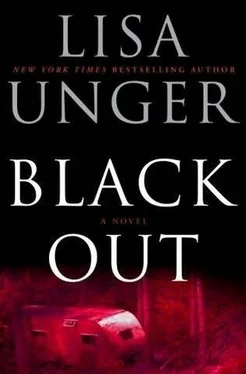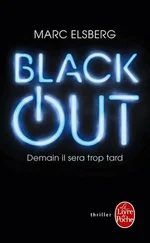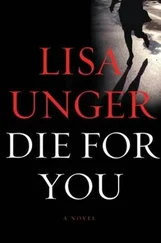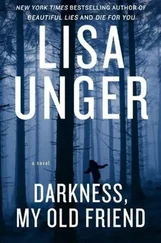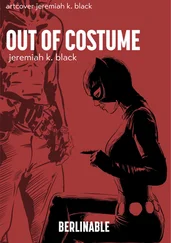“Where, Victory?” I say too loudly. She’s gone back to playing with her dolls. They’re having a tea party. She looks up from her game, examines my expression because she doesn’t understand my tone. I try to keep the fear off my face, and I might have succeeded. She comes over to the window and offers a shrug.
“Gone,” she says casually, and returns to her babies, sits herself back down on the floor.
“What was he doing?” I ask her, my eyes scanning the tall grass and sea oats that separate our property from the beach. I don’t see any movement, but I imagine someone slithering toward our house. We wouldn’t see him until he reached the pool deck. We’ve been lax about security lately, lulled into a false sense of safety. I should have known better.
“He was watching,” she says. My heart goes cold.
“Watching the house, Victory?”
She looks at me, cocks her head. “No. The birds. He was watching the birds.”
Victory begins pouring little imaginary cups of tea. Esperanza is still humming in the kitchen. There is no one on the beach. The sun moves from behind the clouds and paints everything gold. I decide it’s time to call my shrink.
A couple of months after my mother and I moved to Florida and I had settled reluctantly into my new school, she started to act strangely. Her usual manic highs and despondent lows were replaced with a kind of even keel that felt odd, even a little spooky.
The early changes were subtle. The first thing I noticed was that she’d stopped wearing makeup. She was a pretty woman, with good bone structure and long hair, silky and fine. Like her hair, her lashes and brows were blond, invisible without mascara and a brow pencil. When she didn’t wear makeup, she looked tired, washed out. She’d always been meticulous about her appearance. “Beauty is power,” she would tell me, though I’d never seen any evidence of this.
We were in the kitchen on a Saturday morning. I was eating cereal and watching cartoons on the small black-and-white set we had sitting on the counter; she was getting ready for the lunch shift at the diner. The ancient air conditioner in the window was struggling against the August heat, and I could feel beads of sweat on my brow and lip in spite of its best efforts.
I looked over at my mother, leaning against the counter, sipping coffee from a red mug, her bag over her shoulder. She stared blankly, zoning out, somewhere else.
“Mom, aren’t you going to ‘put your face on’?” I said, nastily mimicking the chipper way she always said it.
“No,” she said absently. “I’m not wearing makeup anymore.”
“Why not?”
“Because it’s cheap. Frank thinks it makes me look like a whore.”
I felt a knot in my stomach at her words, though at the time I couldn’t have explained why.
“He said that?”
She nodded. “He said he couldn’t sleep at night knowing that I was walking around looking like that, that other men were leering at me, thinking they could have me at any price. He said I should display my face as God made it. And he’s right.”
I didn’t know what to say. But even at sixteen-almost seventeen by then-I knew that it was so screwed up in so many ways that there was no way to address it.
“Mom,” I said finally, “that’s bullshit.”
“Watch your mouth, Ophelia,” she snapped, turning angry eyes on me. “I didn’t raise you to talk that way. When Frank comes home, there won’t be any talking like that.”
She looked away from me after a moment and stared out the window as if she were expecting someone.
“Mom, Frank’s on death row,” I said calmly. “He’s not coming home.”
She turned and looked at me sharply. “Don’t say that.”
“It’s true, Mom. You know it’s true.”
“Ophelia, you don’t know what you’re talking about,” she said, raising her voice. “There’s new evidence. Evidence that will prove there is no way Frank did the things they say he did. He’s innocent. God won’t let an innocent man die for crimes he didn’t commit.”
Her tone had gone shrill, and there were tears in her eyes. She slammed her empty coffee cup on the counter and left without another word.

We’ve talked about this a hundred times at least, my shrink and I. This first moment between my mother and me when I knew that something was wrong, really wrong.
“And how were you feeling after she left that morning?”
“Sick,” I say. “Scared.”
“Why?”
“Because she seemed…different. And I didn’t want Frank to ‘come home.’ I figured he was just a phase she was going through, that it would go bad like all her relationships, and we’d move back to New York.”
“You were afraid of him?”
It seems like a stupid question. “He was a convicted rapist and murderer,” I say slowly. My doctor gives a deferential nod but doesn’t say anything, waits for me to go on. When I don’t, he says, “Your mother thought he was innocent. Wasn’t it possible? Plenty of people have been convicted of crimes they didn’t commit.” He does this, plays devil’s advocate to encourage me to defend my position. I find it annoying rather than helpful.
“My mother thought he was innocent, yes,” I say. I remember those awkward visits where they would put their hands against the glass that separated them until one of the guards barked at them to stop. I remember how he’d look at me, ask me about school. I remember his cool gaze and soft voice. Something about him made me want to run screaming. “There was something dead in his eyes,” I say. “Even when he smiled, there was something…missing. And then all these changes in my mother. If he had such an effect on her from behind bars, what could he do to her if he was living with us?”
My doctor is silent for a moment.
“What do you think you could have done at this point that might have changed the events that followed?” he asks finally.
This is my thing. There was something about that morning in the trailer with my mother. I feel strongly that it was the last moment where things might have turned out differently. If I had chased after my mother and forced her to tell me what she was talking about. If I had told her that I felt sick and scared and that Frank was guilty and that he could not, should never, come live with us, she might have listened. I tell this to my shrink.
“But do you really think she would have heard you, Annie?”
“I guess I’ll never know.”
He lets the words hang in the air. We’ve both heard them a hundred times. And somehow they never rest easier with me.
“What did you do instead?” he asks.
“I finished my cereal, watched some more television. Told myself that she was nuts, an idiot. I pushed it out of my head.”
“You’re good at that.”
“Pushing things out of my head? Oh, yes.”
His office is uncomfortable. The chenille sofa is soft but cheap, seems to push me out rather than welcome me in. It’s far too cold in the refrigerated way that indoor spaces get too cold in Florida. The tip of my nose feels cold even though it’s blazing outside, and I can see the sunlight glinting off the warm green waters of the Intracoastal.
I don’t lie on the couch but sit cross-legged in the corner; on my first visit he told me I could recline if it made me feel comfortable. I told him it wouldn’t. He sits across from me in a huge chair that he easily fills, a low cocktail table covered with art books-Picasso, Rembrandt, Georgia O’Keeffe-between us. The space is trying very hard to be a living room and not a doctor’s office. Everything is faux here-the table, the bookshelves, his desk all made of cheap wood veneer, the kind of stuff that comes in a box, just a pile of wood, a bag of screws, and a booklet of indecipherable instructions. It seems transient and not very comforting. I feel as if his furniture should be made of oak, something heavy and substantial. Outside his window should be a blustery, autumn New England day with leaves turning, maybe just the hint of snow. He should be wearing a sweater. Brown.
Читать дальше
